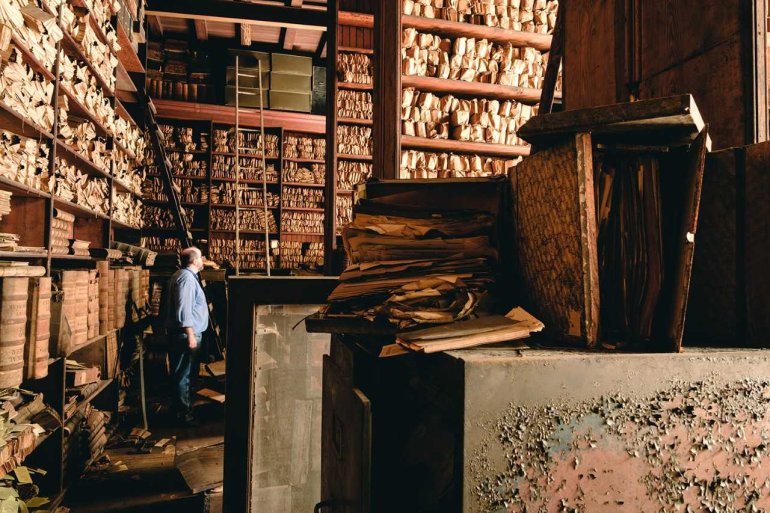
NEW ORLEANS – The preservation process has begun for bank records, stacked floor to ceiling, dating back to the 1800’s.
Hundreds of ledgers line the 25-foot-tall cabinets in the sealed-off attic of the 1888 Safe Deposit Vault building on Gravier Street.
Iron padlocks secure antique trunks which contain documents that might provide insight into more than 100 years of New Orleans bank history.
As the bank makes its move to the new Hancock Whitney Center New Orleans regional headquarters, a highly skilled team of specialists has begun meticulously removing thousands of books and documents from the attic.
Some of the articles date as far back as 1883—the year Whitney National Bank was founded.
“For almost 100 years, the bank used this room to safeguard old account ledgers, cancelled checks, and loan documents representing past transactions, many of which helped shape today’s New Orleans,” said Hancock Whitney President Joseph S. Exnicios, a New Orleans native. “As the room filled to capacity, we used other secure areas and, ultimately, transitioned to electronic storage that became the industry standard.”
Built in 1888, the documents are described as “amazingly well preserved,” considering the high humidity New Orleans endures.
“Even though most of the items seem to be intact, they’re still old and fragile. We believe it’s important to work closely with local experts accustomed to moving delicate artifacts for galleries, antique dealers, museums, historians, and other clients to protect these documents until we can assess their historical value,” added Exnicios.
Hancock Whitney wants to review every piece of paper in case important historical information is tucked away among the piles bank notes.
Though most of the material is subject to banking protocols, some non-confidential, historically significant documents may find their way to organizations dedicated to preserving local history.


